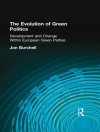This handbook assesses the phenomenon of populism—a concept frequently belabored, but often misunderstood in politics. Rising populism presents one of the great challenges for liberal democracies, but despite the large body of research, the larger picture remains elusive. This volume seeks to understand the causes and workings of modern-day populism, and plumb the depths of the fears and frustrations of people who have forsaken established parties. Although the main focus of this volume is political science, there are more disciplines represented in order to get a whole picture of the debate. It is comprised of strong empirical and theoretical papers that also bear social relevance.
表中的内容
Part I Populism : Introduction to & some Reflections on the Concept.- Chapter 1: The New Age of Populism – Reapproaching a Diffuse Concept.- Part II : Theoretical Critique.- Chapter 2: The Past and Present of Populism.- Chapter 3: Populism is Hegemony is Politics? Ernesto Laclau’s Theory of Populism.- Chapter 4: An Antipodean Populism? Winston Peters, New Zealand First, and the Problems of Misclassification.- Chapter 5: A Critique of Left-Wing Populism – Critical Materialist and Social-Psychological Perspectives.- Part III: The Political Psychology of Populism & its Affective Underpinnings .- Chapter 6: The Psychology of Populism.- Chapter 7: The Affective Underpinnings of Right-Wing Populist Party Support.- Chapter 8: From Specific Worries to Generalized Anger – The Emotional Dynamics of Right-Wing Populist Party Support.- Part IV: Authoritarian Populism & Fascism.- Chapter 9: Fascism and Populism.- Chapter 10: Populism and Authoritarianism.-Chapter 11: Authoritarian Populism and Collective Memory Manipulation.- Chapter 12: The (almost) Forgotten Elitist Sources of Right-Wing Populism.- Part V: Economic Populism, Inequality & Crises.- Chapter 13: Populism and the Economics of Antitrust.- Chapter 14: The Red Herring of ‘Economic Populism’.- Chapter 15: Populist Mobilization in the United States: Adding Political Economy to Cultural Explanations.- Part VI: Populism & Gender .- Chapter 16: Right-Wing Populism and Gender.- Chapter 17: The Gendered Politics of Right-Wing Populism and Intersectional Feminist Contestations”.- Chapter 18: Popular Sovereignty and (Non)Recognition in Venezuela: On the Coming into Political Being of El Pueblo.- Part VII: New Populisms and Cleavages .- C hapter 19: Environmental Populism.- Chapter 20: Medical populism.- Chapter 21: Global Populism.- Chapter 22: Populism and the Cosmopolitan-Communitarian Divide.- Chapter 23: (Populism and) the Recasting of the Ideological Landscape of Liberal Democracies.- Part VIII: Populism Discourses .- Chapter 24: The Political Language of Islamic Populism.- Chapter 25: Populism, Anti-populism and Post-truth.- Chapter 26: Experience Narratives and Populist Rhetoric in US Congressional Primaries.- Chapter 27: The Framing of Right-Wing Populism. Intricacies of ‘Populist’ Narratives, Emotions, and Resonance.- Chapter 28: Populism and Collective memory.- Part IX: Populists in Office .- Chapter 29: Populism in Southeast Asia.- Chapter 30: Populism in Africa and the Anti-Corruption Trope in Nigeria’s Politics.- Chapter 31: Populism Under Former Liberation Movements as Governments in Southern Africa: The Cases of Namibia, South Africa and Zimbabwe.- Chapter 32: Venezuela- The Institutionalization of Authoritarian Populism.- Chapter 33: Populist Neo-Imperialism: A New Take on Populist Foreign Policy.- Part X: Strategic Populism & Societal Support .- Chapter 34: Populism as an Implementation of National Biopolitics. The Case of Poland.- Chapter 35:Understanding the Infiltration of Right-Wing Populist Positions Within Unsuspected Groups: The Case of Professional Social Workers.- Chapter 36: Clarifying our Populist Moment(s): Right-Wing and Left-Wing Populism in the 2016 U.S. Presidential Election.- Part XI: Consequences of Populism & Anti-Populist Discourse .- Chapter 37: Polarization as a Result of Populism? Evidence from Plenary Debates in the Bundestag.- Chapter 38: The Enemy in my House: How Right-Wing Populism Shifted the Debate About Citizenship in France.- Chapter 39: The Democracy’s ‘Resolved’ Dilemma. A Theory of Turnout Inequality Reducing (Right) Populist Parties.- Chapter 40: Counter Strategies in Dealing with Populism.
关于作者
Michael Oswald is Assistant Professor of Politics at the University of Passau, Germany, and the author of
Mobilization, Representation, and Responsiveness in the American Democracy (Palgrave Macmillan, 2020).












